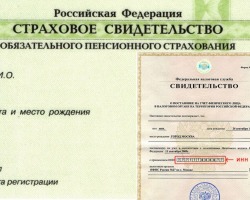In this article we will consider who can be considered a close relative by law and why.
Content
- Who is a close relative and family member by law: concept
- Husband and wife: relatives or not?
- Who is considered to be family members under the Law of the Russian Federation?
- Who is a close relative by law: Features of law
- Who is a close relative under the law when distributing an inheritance?
- Video: Who are “close relatives”?
Usually we do not think about who is a close relative to us. We call loved ones those who live with us. However, in the case of legal relations, the law needs to determine close kinship. Such situations arise, for example, if they marry or in the case of a criminal case, obtaining an inheritance and there are still some other cases.
Most questions arise when issuing an inheritance. We are already familiar with us that relatives find it difficult to delay what they have left of the dead. However, if you know how to do this correctly by law, then the process will be much easier in different everyday situations.
Who is a close relative and family member by law: concept

In Russian legislation there is no single definition who is a close relative. It all depends on which particular branch of law we turn to. The Law of the Russian Federation has a concept of family members.
For example, upon marriage, close relatives are recognized as people who have common blood. In this case, under the law, marriage cannot be registered between close relatives. However, this is not all the family tree, but only the closest relatives. These include parents, grandfathers, grandmothers, sisters and brothers. But with more distant kinship, people do not admit close.
There are times when a person with whom there is no common blood can be recognized as the closest relative. This is an adoption case when the law equalizes the rights with those that can be between their native children and parents.
Husband and wife: relatives or not?
Many questions arise about who the husband and wife are each other. If we consider the connection of the husband and wife as blood, then it is immediately clear that this is impossible. They cannot be blood relatives, such marriages are prohibited in the Russian Federation. However, the law considers relations related, because two families are legally united. However, this does not make them relatives. A completely different provision in case of inheritance or criminal law. But this will be a separate chapter, a little lower.
Who is considered to be family members under the Law of the Russian Federation?
But the concept of family members has a deeper performance. These are considered those who live in one apartment. Even if you invited a person to live with you, he will also be considered a member of your family until he leaves his family. In addition, for close relatives and family members, the order of residence is different. For example, a close relative cannot be seized forcibly if he is registered in the apartment, and a family member, without family ties, can be if the owner goes to court. But it must be taken into account that if a guy and a girl (a close member of the family) will be married, then the guy will already have the right to live, as he will become an official member of the family.

Who is a close relative by law: Features of law
Despite the fact that the Constitution of the Russian Federation clearly indicates who is a close relative, it is still necessary to take into account specific situations. Because in addition, the concept of close kinship is separately specified in each code.
Family code
In the presented Code, marriage is considered somewhat different. Close can be called:
- Children
- Parents
- Native and summary sisters and brothers
- Grandparents and grandchildren
Housing legislation
This law is considering those who are a member of the family, and close relatives in this law do not appear. The law considers those people who jointly live in the same square. It turns out that they do not have to be relatives.
Administrative Code
This code recognizes both close kinship and family ties. In other words, for him these two concepts are not distinguished in any way.
Criminal law
The Criminal Code differs little from others in terms of the proximity of relatives. In this case, there are still a couple of features. So, husband and wife will be recognized as relatives. They can, if desired, refuse to testify against each other. Moreover, the summary brothers and sisters are not considered relatives, even though they may have one father or one mother.
Tax law
Tax legislation does not provide for a separate article, according to which close kinship would be determined. In any situations where kinship is required, the law refers to the Family Code.
Who is a close relative under the law when distributing an inheritance?
Of course, different branches of law determine the degree of kinship in different ways, therefore it is better to consider different family ties separately in relation to the inheritance.
Wife husband
When two people officially register their relations, a marriage union arises between them. That's just this connection is preserved until the divorce. If the pair breaks up officially, then their rights and obligations are lost, as spouses.
In the event of the death of one of the spouses, the inheritance of the second spouse is carried out as a relative of the first stage, subject to the official marriage. If there was a divorce or a marriage was not registered, then the inheritance is not supposed to be inherited.

Grandmother grandfather
Grandma or grandfather can be a close relative, but not for everyone. According to the law, they are relatives for their children, as well as their children, that is, grandchildren.
But there is one important point that needs to be taken into account. When the couple marry, the parents of one spouse in terms of inheritance are not close relatives for the second spouse. So, for example, the spouse cannot claim the inheritance of the mother or father of the other spouse, because they are not relatives, even despite marriage.
Native, half -sister, brother
Sisters and brothers also belong to close relatives. When inheritance, they act as heirs of the second stage.
The legislation is considering under sisters and brothers:
- Relatives having a common father and mother
- Lumps or single -intensive, when different fathers or mothers, respectively
- Girls and boys adopted by parents, provided that until adulthood remained in force
- The same applies to the situation when the adoptive parents took two children. So, by law they become relatives of each other
- A child or sister cannot be considered a child who was taken into the family as a guardian, this does not give the right to close kinship
Steps or stepson of blood parents
We will consider this situation in more detail, since it may not be too clear. Imagine that you live with your mother, and dad already has a different family and a child appears there. This child will be your own by blood. But now, if the wife of dad also has their own children, then they will not be family for you.
Cousins, sisters
The law no longer recognizes cousins \u200b\u200band brothers as close relatives, although their parents are close relatives. At the same time, they can inherit property in cases where their parents died and there are no heirs of the first or second stage. Then the right goes to them. However, as independent heirs, they are not considered.
Mother -in -law, mother -in -law, son -in -law, daughter -in -law
All these people will not be relatives to each other, whatever one may say. Although, they can be considered family members. Family ties are maintained only with children, but with their spouses - they are not formed.
Stepfather, stepmother
In such a status, people cannot become relatives of each other. However, if they undergo an adoption procedure, when the child is considered, as it were, relatives, then in this case we can already talk about a close connection.

Uncle, aunt, nephew, nephew
If we consider kinship in terms of blood, then aunts, uncles, nephews and nephews will be close to each other. They can inherit if there are no heirs in the first stage. At the same time, their children will not be close relatives for the testator, but they can also enter into the rights of inheritance even more distant.
Grandson, granddaughter
The grandchildren can be considered close relatives to agree. But when the question arises of inheritance, they cannot do this, because first of all, parents who are children of a relative go.
The possibility of receiving an inheritance by grandchildren arises only when both parents refuse him in favor of their children, or they are no longer alive, and then their children (grandchildren) become the first applicants. The degree of kinship in this case is very important. For close relatives, simplified inheritance rules are provided, but in each case the procedure will differ. Because some relatives may abandon the inheritance or do not have time to declare themselves on time.
Sister's husband, brother's wife
There are no blood relations and close kinship between these two persons. Despite this, they can still relate to the cohort of the heirs, because their relationship consists of the marriage union of their relatives.
In legal practice, there are many situations that are associated with blood kinship. In particular, incidents often occur. Especially many problems arise in issues of taxation and inheritance.
To take the right steps in the inheritance issue, it is important to independently study what kind of family ties are.







